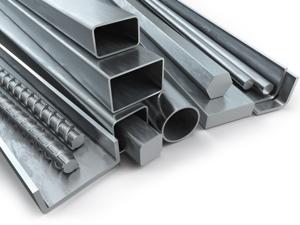Content Menu
● Understanding Aluminum Extrusion Bearings
● Key Industries Utilizing Aluminum Extrusion Bearings
>> 1. Automotive Industry
>> 2. Aerospace Industry
>> 3. Industrial Machinery
>> 4. Renewable Energy
>> 5. Electronics and Technology
>> 6. Construction Industry
● Advantages of Aluminum Extrusion Bearings
● Future Trends in Aluminum Extrusion Bearings
>> Innovations on the Horizon
● Conclusion
● FAQ
>> 1. What are aluminum extrusion bearings?
>> 2. Why are aluminum extrusion bearings preferred over other materials?
>> 3. In which industries are aluminum extrusion bearings commonly used?
>> 4. How does the manufacturing process of aluminum extrusions work?
>> 5. What advantages do aluminum extrusion bearings offer?
Aluminum extrusion bearings are pivotal components across various industries, providing essential support and functionality in numerous applications. Their lightweight, corrosion-resistant, and durable properties make them particularly valuable in sectors where efficiency and performance are paramount. This article explores the industries that benefit most from aluminum extrusion bearings, highlighting their applications, advantages, and future potential.

Understanding Aluminum Extrusion Bearings
Aluminum extrusion bearings are manufactured through the aluminum extrusion process, which involves forcing heated aluminum through a die to create specific shapes. This method allows for the production of complex profiles that can be tailored to meet the precise requirements of different applications. The resulting bearings are lightweight yet strong, making them ideal for various mechanical and structural uses.
Key Industries Utilizing Aluminum Extrusion Bearings
1. Automotive Industry
- The automotive sector is one of the largest consumers of aluminum extrusion bearings. They are used in various components such as chassis, suspension systems, and engine parts. The lightweight nature of aluminum helps improve fuel efficiency while maintaining structural integrity.
- Applications:
- Chassis Components: Aluminum extrusions provide significant weight savings in vehicle frames.
- Suspension Parts: The use of aluminum bearings in suspension systems enhances ride quality and handling.
- Engine Mounts: Lightweight aluminum mounts reduce overall engine weight, contributing to better performance.
2. Aerospace Industry
- In aerospace, weight reduction is critical for performance and fuel efficiency. Aluminum extrusion bearings contribute to this goal by providing lightweight solutions that do not compromise strength.
- Applications:
- Aircraft Frames: Aluminum extrusions are used in fuselage structures to minimize weight while maximizing strength.
- Landing Gear Components: Bearings made from aluminum help reduce the overall weight of landing gear systems.
- Engine Housings: These components benefit from aluminum's thermal conductivity and lightweight properties.
3. Industrial Machinery
- Industrial machinery relies heavily on aluminum extrusion bearings for their ability to reduce friction and wear between moving parts. This leads to enhanced energy efficiency and longer equipment life.
- Applications:
- Conveyor Systems: Aluminum bearings facilitate smooth movement in conveyor belts, reducing energy consumption.
- Robotics: Lightweight aluminum components improve the agility and speed of robotic arms.
- Manufacturing Equipment: Bearings in machinery enhance operational efficiency and reliability.
4. Renewable Energy
- The renewable energy sector utilizes aluminum extrusion bearings in wind turbines and solar panel structures due to their durability and resistance to environmental factors.
- Applications:
- Wind Turbine Components: Bearings help ensure smooth rotation and optimal energy capture.
- Solar Panel Frames: Lightweight frames using aluminum extrusions support solar panels while resisting corrosion.
5. Electronics and Technology
- In electronics, aluminum extrusion bearings are used in devices requiring heat dissipation and structural support, such as computer casings and heat sinks.
- Applications:
- Computer Hardware: Aluminum extrusions provide structural integrity while allowing for effective heat management.
- Telecommunications Equipment: Lightweight components facilitate easier installation and maintenance.
6. Construction Industry
- The construction industry benefits from aluminum extrusion bearings in scaffolding systems, window frames, and structural supports due to their strength-to-weight ratio and corrosion resistance.
- Applications:
- Structural Components: Aluminum extrusions offer excellent load-bearing capabilities while being lightweight.
- Window Frames: Corrosion-resistant properties make them ideal for long-lasting installations.
- Scaffolding: Lightweight scaffolding systems improve safety during construction projects.

Advantages of Aluminum Extrusion Bearings
- Lightweight: Aluminum is significantly lighter than steel, which reduces the overall weight of machinery and vehicles without sacrificing strength. This is particularly important in industries like aerospace where every gram counts.
- Corrosion Resistance: Aluminum naturally forms a protective oxide layer that prevents corrosion, making it ideal for use in harsh environments such as marine or industrial settings.
- Customizability: The extrusion process allows manufacturers to create custom shapes and sizes tailored to specific applications. This flexibility enables engineers to design unique solutions that meet exact specifications.
- Cost-Effectiveness: The efficient production methods associated with aluminum extrusion reduce material waste and manufacturing costs. Additionally, the longevity of aluminum components reduces maintenance costs over time.
Future Trends in Aluminum Extrusion Bearings
As industries continue to innovate towards more sustainable practices, the demand for aluminum extrusion bearings is expected to grow. The trend towards lightweight materials in transportation will likely drive further adoption in automotive and aerospace sectors. Additionally, advancements in manufacturing technologies will enhance the capabilities of aluminum extrusions, allowing for even more complex designs.
Innovations on the Horizon
- 3D Printing with Aluminum Alloys: The integration of 3D printing technology with aluminum alloys opens new avenues for creating intricate bearing designs that were previously impossible with traditional methods.
- Enhanced Coatings for Improved Performance: Future developments may include advanced coatings that further enhance the corrosion resistance or wear characteristics of aluminum extrusion bearings.
- Smart Bearings with Sensors: Incorporating sensors into bearing designs could provide real-time monitoring of performance metrics such as temperature or load, leading to predictive maintenance strategies.
Conclusion
Aluminum extrusion bearings play a crucial role across multiple industries by providing lightweight, durable, and corrosion-resistant solutions that enhance performance and efficiency. As technology evolves and industries seek more sustainable practices, the significance of these bearings will only increase. Their ability to meet specific application needs while contributing to overall product performance makes them an invaluable component across numerous sectors.

FAQ
1. What are aluminum extrusion bearings?
Aluminum extrusion bearings are components made from extruded aluminum profiles designed to reduce friction between moving parts in machinery.
2. Why are aluminum extrusion bearings preferred over other materials?
They are preferred due to their lightweight nature, corrosion resistance, strength-to-weight ratio, and customizability for specific applications.
3. In which industries are aluminum extrusion bearings commonly used?
Common industries include automotive, aerospace, industrial machinery, renewable energy, electronics, and construction.
4. How does the manufacturing process of aluminum extrusions work?
The manufacturing process involves heating aluminum billets until malleable and then forcing them through a die to create specific shapes.
5. What advantages do aluminum extrusion bearings offer?
They offer advantages such as reduced weight, improved energy efficiency, increased durability against environmental factors, and cost-effectiveness due to lower material waste.






















